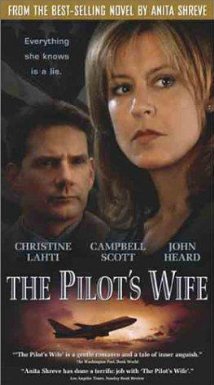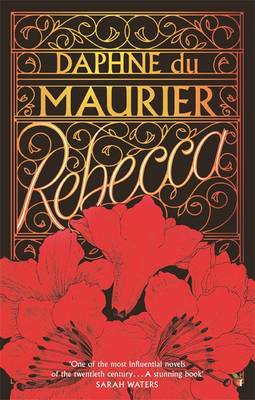Genre: Drama
Release date: 14 April 2002
Based on: The Pilot's Wife, by Anita Shreve
Starring: Christine Lahti, Campbell Scott, Alison Pill
Running time: 89 minutes

* 'Here in the narrow passage and the pitiless north, perpetual Betrayals, relentless resultless fighting.' *

The Pilot’s wife is a drama film directed by Robert Markowitz and starring Christine Lahti, Campbell Scott and Alison Cambell . It was released in 2002 and is based on the book of the same name by Anita Shreve. Kathryn’s world collapses when she is woken up in the middle of a night by an airline official who tells her that her pilot husband has died in a plane crash. However, the worst is still to come; as the police assume he has committed suicide and killed all of the passengers on board, she decides to conduct her own investigation in order to find the truth... A truth she could never have imagined!
Christine Lahti’s performance as Kathryn Lyons is outstanding. From deep sorrow to strong resolution, we follow her steps towards an uncertain future and grim discovery. There is no real need for words; her body language alone shows her emotions as she tries to discover the truth. Her relationship to her daughter Mattie (Alison Campbell) is only briefly illustrated, but gives the spectators food for thought.
The chronology is one of the main strength of the film. Frequent flashbacks are mixed to the present plot, adding suspense and energy to the story. These memories of the past last a few seconds to several minutes – according to how important for our understanding they are – and give us a fragmented portrait of Jake. The contrast between the characters’ memories and the reality is clear and each of Kathryn’s discoveries about her husband’s secrets raises anew the same question: how well can you know a person?
The Pilot’s wife’s filming style successfully goes with the action: from the music to the short scenes inserted in the chronology in order to help us understand the ending, every aspect works together so as to captivate the audience. The – wonderful – setting plays here an important role; we start the story in Kathryn’s cosy home, a safe and familiar environment. As the tension builds up, we go further and further: to her grandmother’s house, to London and then, finally, to Ireland.
The resolution of the mystery is quite expected, as Kathryn has been assembling clues from the beginning. Still, a part of surprise remains as she discovers the truth about her husband’s death. This explanation is however quick and not necessarily easy to understand for spectators who lack knowledge of the context.
It nonetheless remains a thrilling film in which we are submerged in family secrets and drama. Behind the mystery which stands at the forefront, subtle questions about love, family and relationships are raised... So, do you think you really know the people you share your life with?

Director Robert Markowitz produced a film whose plot is extremely true to the novel it is based on. For those who have read the book, there are thus no real surprises. However, the general impression of the film is quite different from the one created by the reading. First of all, as is the case in most adaptations, there are fewer details. While Anita Shreve focuses mostly on the relationships between the different characters – Kathryn with her daughter, with Jake, with Robert, with her grandmother – the storyline of the film is only told through Kathryn’s perspective. There are, of course, several scenes in which she interacts with other people, but they lack the depth of a real relationship. On the other hand, the action seems much quicker and livelier. It is then the mystery which is at the forefront rather than the characters’ psychology.
This change of focus causes a few other variations, mostly in the chronology of the plot. We do not get a full description of Kathryn’s feelings and of her coping with Jake’s death and secrets. We just share the experience with her and see everything through her eyes, while the other characters – Robert, Mattie and Julia – remain in the background. The flashbacks about the past are present, but not as relevant as in the original story. Therefore, the whole past-present rhythm changes, because these brief memories give the plot some dynamic.
An important difference is the end, which remains completely open. It actually follows the same process as the rest of the plot: the spectators are told just enough in order to understand, the rest is left to their own imagination. Many questions are not answered, many details remain unclear, but I found this end somehow more convincing than that of the novel... Maybe because it is much more realistic!
From a mostly psychological novel, Robert Markowitz made an enthralling mystery, which probably was a wise choice given the change of medium used to share the story. Although the plot remains unchanged, thus with less details, we obtain a completely different image of the characters, an image which is much more open to interpretation than in the novel. In my opinion, a very successful adaptation!
_________________________
Review of Anita Shreve's novel The Pilot's Wife


































